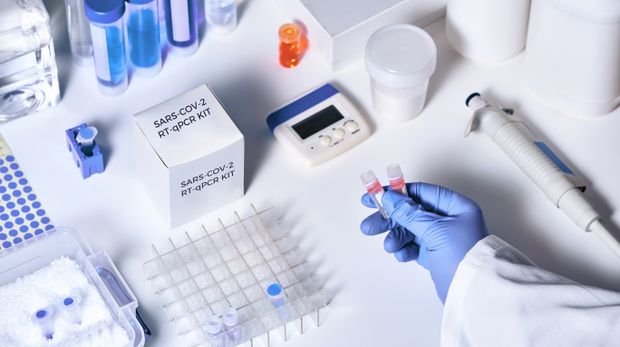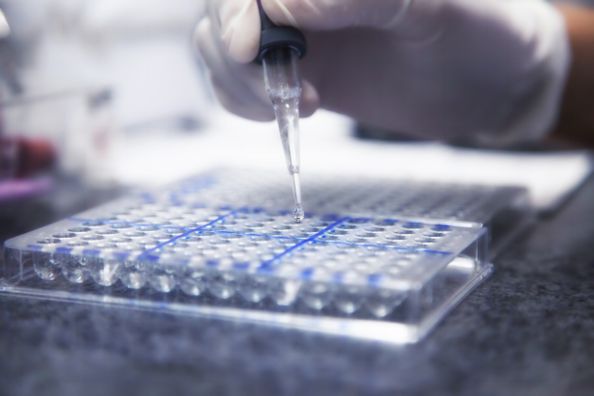Testing for COVID-19 has been a critical way to control the spread of the virus throughout 2020. COVID-19 testing is evolving, and new information seems to be shared every day. It’s important to understand the difference between tests, in terms of their intended use and performance, so you can best protect yourself and your loved ones during this pandemic.
What is the difference between Diagnostic and Surveillance Testing?
Diagnostic testing is used to detect the presence or absence of disease in an individual. These tests are performed when there is reason to suspect that a person may be infected with COVID-19, such as recent exposure and/or the person is exhibiting symptoms. Results from a diagnostic test will provide a positive or negative outcome, diagnosing you with COVID-19 or ruling out an active infection.
The majority of COVID-19 diagnostic testing within the United States has been conducted via Polymerase Chain Reaction (PCR) tests. These tests look for genetic material of the virus and are the most sensitive tests for detecting an active infection. For these tests, a health care provider will collect mucus from deep within your nose or throat using a specialized swab. PCR tests require specific equipment and chemicals typically located at offsite labs to read the results. There are both rapid and traditional (non-rapid) PCR tests available, but the rapid PCR tests are not as sensitive in detection as traditional PCR tests. Diagnostic PCR testing is the type of testing you will find at DuPage Medical Group COVID-19 Testing Sites as well as most local health department testing facilities.
Surveillance testing is used to monitor the COVID-19 risk at the community or population level. This type of testing is used to monitor things like whether the virus is affecting some groups of people more than others, or if its prevalence is increasing or decreasing. Most surveillance testing does not use diagnostic PCR testing and is not intended for individuals who are exhibiting symptoms of COVID-19. Instead surveillance testing uses antigen testing which is a rapid test that detects specific proteins on the surface of the virus. These tests have higher false positive and negative results. Therefore, results from antigen surveillance testing only provide an indication that there is a clinically significant finding and usually requires further diagnostic PCR testing to confirm an active COVID-19 infection.
Why are some school districts and businesses implementing surveillance testing for a return to in-person classes or work?
Surveillance testing is being approved in some school districts and businesses due to the proximity of people in a confined location like a classroom or office space. This type of testing is administered on a regular ongoing basis to individuals who are not experiencing symptoms as an added safeguard to minimize the spread of COVID-19 within large groups. This testing will ensure that policies put in place such as hand washing, mask-wearing and social distancing are being followed and are effective. These frequent screenings will allow schools and businesses to slowly increase in-person learning and in-office work safely.
What are saliva tests?
Saliva tests are a newer form of testing that is less invasive than the traditional PCR swab test. These do not require chemical reagents to be read making them more widely available. Initial studies are showing that saliva tests are about as reliable as the traditional PCR test that require the nasal swabs. Saliva tests also eliminate the need for healthcare workers to encounter people who might be infected since these tests don’t always need to be administered by a healthcare worker.
What is antibody testing?
An antibody test looks for the presence of antibodies in your blood. Antibodies are specific proteins that your body makes in response to an infection. Presence of COVID-19 antibodies in your body indicate you had the viral infection and may show an immune response to it, even if you never experienced any symptoms.
It is important to note that while these tests can determine who had the virus, we are not yet certain if antibodies created in response to the COVID-19 infection will provide immunity and/or how long any immunity will last. The CDC continues to conduct studies on COVID-19 immunity to determine the answers to these questions.
Antibody testing is performed by a blood test, either through a blood draw or finger prick. This differs from the swab test performed to determine active COVID-19 infection cases. DuPage Medical Group uses the Roche COVID-19 antibody test and is the first outpatient medical group to obtain this test nationally. The Roche test is the most accurate antibody test available, with a high sensitivity that approaches 100% that provides us with the best results possible. Learn more about antibody testing here.
What are the at-home test options and how can they be used?
Over the past few months, the only at-home tests that were available were home collection kits. These kits cost on average $100-$150 and are available now at major retailers and testing companies. To use the collection kits, individuals swab their nostrils or spit saliva into a vial and send the sample for processing at a lab which takes 24 – 48 hours to get results.
In the past few weeks, the Food and Drug Administration (FDA) has authorized three different rapid at-home tests with over 90% accuracy[1]. Individuals will be able to swab their nostrils, run the test at home and can get results in about 15 – 30 minutes. Lucira was the first at home test approved by the FDA and is for individuals ages 14 years or older, Ellume is the second test that was approved for individuals ages 2 years or older and Abbott’s BinaxNOW was the third at home test to receive approval for individuals ages 15 years or older. These three tests will be available to the general public over the next few months.
To learn more about how to schedule your COVID-19 test with DuPage Medical Group, please visit our COVID-19 Testing Page. If you have additional questions about diagnostic, antibody, surveillance and at home testing, you can reach out to your DuPage Medical Group provider for more information.
[1] https://www.washingtonpost.com/health/2020/12/16/coronavirus-home-test-rapid/
Health Topics:






